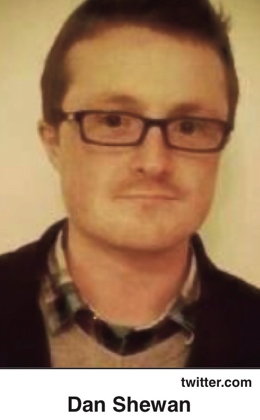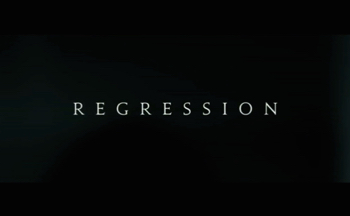Rascals case in brief
In the beginning, in 1989, more than 90 children at the Little Rascals Day Care Center in Edenton, North Carolina, accused a total of 20 adults with 429 instances of sexual abuse over a three-year period. It may have all begun with one parent’s complaint about punishment given her child.
Among the alleged perpetrators: the sheriff and mayor. But prosecutors would charge only Robin Byrum, Darlene Harris, Elizabeth “Betsy” Kelly, Robert “Bob” Kelly, Willard Scott Privott, Shelley Stone and Dawn Wilson – the Edenton 7.
Along with sodomy and beatings, allegations included a baby killed with a handgun, a child being hung upside down from a tree and being set on fire and countless other fantastic incidents involving spaceships, hot air balloons, pirate ships and trained sharks.
By the time prosecutors dropped the last charges in 1997, Little Rascals had become North Carolina’s longest and most costly criminal trial. Prosecutors kept defendants jailed in hopes at least one would turn against their supposed co-conspirators. Remarkably, none did. Another shameful record: Five defendants had to wait longer to face their accusers in court than anyone else in North Carolina history.
Between 1991 and 1997, Ofra Bikel produced three extraordinary episodes on the Little Rascals case for the PBS series “Frontline.” Although “Innocence Lost” did not deter prosecutors, it exposed their tactics and fostered nationwide skepticism and dismay.
With each passing year, the absurdity of the Little Rascals charges has become more obvious. But no admission of error has ever come from prosecutors, police, interviewers or parents. This site is devoted to the issues raised by this case.
On Facebook
Click for earlier Facebook posts archived on this site
Click to go to
Today’s random selection from the Little Rascals Day Care archives….
Click for earlier Facebook posts archived on this site
Click to go to
Today’s random selection from the Little Rascals Day Care archives….
Shame links Edenton with other ‘ritual abuse’ sites
 Oct. 11, 2015
Oct. 11, 2015
“Satanism lacks a (Jim) Jones or (David) Koresh. Satanism has no Jonestown, no Waco, no Kool-Aid, no casual point of reference.
“This is because Satanic cults, as imagined in popular culture, do not exist.
“Still, some places across the country – West Memphis, Arkansas; Manhattan Beach, California; Edenton, North Carolina; Austin, Texas – belong to a brotherhood of cities united not by the stunned, silent grief of a tragedy like Waco’s, but by the shame of having left innocent families’ lives in ruin in the fervent pursuit of an imaginary evil….
“The ‘Satanic Panic’ of the 1980s and early ’90s was arguably even more frightening than a typical cult precisely because of this lack of a central figure or place; anybody could have been involved, and nobody was above suspicion….”
– From “Conviction of Things Not Seen: The Uniquely American Myth of Satanic Cults” by Dan Shewan at Pacific Standard (Oct. 8)
‘We knew we had a secret’ (so we put Brenda on the case)
June 19, 2013
The Little Rascals parents insisted their children had “disclosed” mostly on their own, rather than a result of persistent interrogation. But this live interview, in the giddy moments after Bob Kelly’s convictions (April 22, 1992), suggests a different pattern:
CNN: How did you find out this happened? You were apparently the first parents to realize something was terribly wrong.
Mark Stever: Kyle, our son, told us in his own way, just different things, like ‘Mr. Bob doesn’t do it anymore. He does it to the other children.’
Audrey Stever: We knew he had a secret, and we knew it happened at nap time, but he couldn’t tell us what it was, and to escape talking about it he would say, ‘Oh, he doesn’t do it anymore, Mommy.’
CNN: And how did you finally bring it out of him exactly what he said had been happening?
Audrey Stever: Well, I approached a friend (Brenda Toppin) who was the investigating officer in the case… and things kind of went from there.
What movie may doubt, book surely doesn’t
 June 11, 2015
June 11, 2015
“In (the upcoming movie) Regression, Ethan Hawke plays a detective investigating accusations by a woman against her father. There’s a twist: The father has admitted wrongdoing, though he has no recollection of what happened – and a psychologist is summoned to help him recover his memories….
“The trailer is opaque in its rendering of what crime the father may have committed, but it’s probably meant to echo the Satanic witch hunts that gripped parts of America in the 1980s and early ’90s…. The daughter’s haunting memories include ‘chanting,’ ‘robes’ and a ‘black mask’….
“So it’ll be interesting to see (director Alejandro) Amenábar’s take in Regression: Does he present the case as a real, Satanic experience that actually occurs within the world of the story, or will the film be a larger commentary on the horrific fallout of unfounded hysteria?
“Here’s hoping it’s the latter…. We’ll find out when Regression opens in August.”
– From “Ethan Hawke and Emma Watson Battle Satan (Maybe) in the Trailer for Regression”
by Aisha Harris at Slate (June 10)
Also arriving in August – but much less ambiguously: “We Believe The Children: A Moral Panic in the 1980s” by Richard Beck. According to a starred review in Publishers Weekly, “Beck marshals extensive research into an absorbing dissection of a panic whose tremors still affect us today.”
In search of justified public panics….

3BLMedia.com
Kevin Drum
March 28, 2016
“I was thinking about recent public panics and started listing a few of them in my mind. This is just off the top of my head:
- Crack babies
- Super predators
- Lehmann/AIG/Countrywide etc.
- Mad cow
- Deepwater Horizon
- Daycare child molesters
- Ebola
- ISIS/Syrian refugees
“I’m not saying that none of these were justified. Big oil spills are no joke. Ebola was certainly a big deal in Africa. The financial collapse of 2008 wasn’t mere panic.
“And yet, generally speaking it seems as if public panics are either completely unjustified or else wildly overwrought. Am I missing any recent examples where there was a huge panic and it turned out to be wholly justified? HIV would have been justified in the early ’80s, but of course we famously didn’t panic over that — other than to worry about getting AIDS from toilet seats. Help me out here….”
– From “Do We Panic Too Much? (Spoiler: Yes We Do)” by Kevin Drum at Mother Jones (March 24)
![]()











0 CommentsComment on Facebook